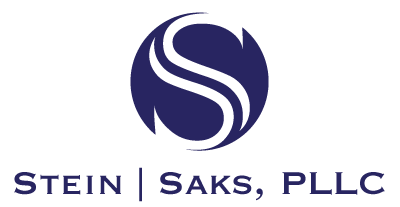06 Apr What Is The FDCPA?
What is the Fair Debt Collection Practices Act? If you are like most people, you may have heard of the FDCPA, but do not really understand what it is or does. The FDCPA is federal law, enacted by Congress in 1978 and amended over the years, most recently in 2010.
What is the FDCPA designed for? The short answer is that this law established a framework of rules debt collectors must follow when attempting to collect outstanding debts from consumers. When the FDCPA was drafted and ultimately passed into law, there was a concern that the fraudulent, abusive and unfair debt collection practices employed by many debt collectors were contributing to personal bankruptcies, job losses, marital instability and invasions of consumers’ personal privacy.
What’s more, those types of unfair collection practices made it difficult for reputable debt collectors to be competitive. Existing laws at the time were simply inadequate to address these concerns.
What Does the Fair Debt Collection Practices Act Do?
An important note of distinction is that the unfair debt collection rules established in the FDCPA only apply to debt collectors, as that term is defined in the law. A debt collector can be a collection agency, a debt buyer, or an individual or company that is otherwise in the business of collecting money owed on delinquent accounts, but not a personal creditor.
If your local auto shop gave you a loan to pay off car repair work, the FDCPA’s unfair debt collection provisions do not apply to the auto shop. However, if you didn’t make payments as agreed and the auto shop sold the delinquent debt to a debt collection agency, that collection agency would be subject to the FDCPA’s provisions.
It is also important to note that it does not matter what type of debt a collector is trying to recover. Collectors must follow the FDCPA rules whether they are attempting to collect on credit card debt, mortgage payments, student loans, medical bills or other household/personal debt.
What Is the Purpose of the FDCPA?
What is the FDCPA designed to do, and who is protected by the law? Ultimately, the purpose of the FDCPA is to protect consumers from being victimized by debt collectors trying to intimidate or threaten consumers in an attempt to receive payment on unpaid debts. The FDCPA also protects those reputable debt collectors following the law, by helping to ensure fair practices.
What is FDCPA designed to do when violations occur? When debt collectors violate one or more of the provisions of the FDCPA, they may be liable for paying monetary damages to the consumer — in addition to paying the consumer’s attorney’s fees and other expenses of litigation. This means that consumers who were victimized do not need to worry about paying legal expenses associated with holding debt collectors accountable for their actions.
What Constitutes a Violation of the FDCPA?
There are several ways a debt collector can violate the provisions of the FDCPA. Some of the most common violations include:
- Violating the communication rules: The FDCPA specifies that debt collectors may not make phone calls before 8 a.m. or after 9 p.m. in the consumer’s local time zone, and they may not contact consumers at their places of work if they know or have reason to know that employees cannot accept personal calls during working hours. In addition, debt collectors knowing that a consumer is represented by an attorney are prohibited from contacting the consumer directly without the attorney’s authorization.
- Harassment or abusive behavior: When debt collectors use profanity — or threaten you, your personal property or other assets, or your reputation — they are violating the FDCPA. Similarly, calling you repeatedly or continuously is considered harassment.
- Attempting to collect invalid debt: Sometimes, debt collectors attempt to repeatedly collect on debts — even if those debts were previously paid in full, or the debt legally belongs to someone other than the consumer the collector is contacting.
- Improper sharing of information: The FDCPA is clear about with whom debt collectors may share information about outstanding debts, and when they would need written permission from the consumer to do so. Sharing information without express authorization is a violation.
How Consumer Protection Attorneys Help Victims of FDCPA Violations
Still wondering, “What is the FDCPA Act?” Or, are you concerned that a debt collector may have violated the rules when contacting you? Stein Saks, PLLC is here to help. As a consumer-focused law firm, our skilled attorneys are committed to advocating for consumers’ rights. We have sued many debt collectors for FDCPA violations and have helped consumers recover settlement funds as a result. If you have been a victim of debt collection harassment, you have rights. Contact Stein Saks, PLLC today to schedule an initial consultation with an attorney.


Sorry, the comment form is closed at this time.